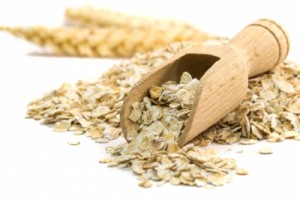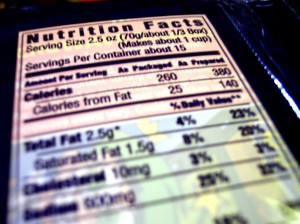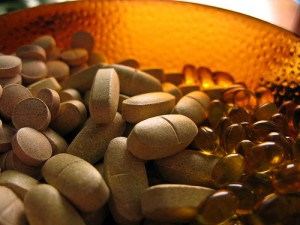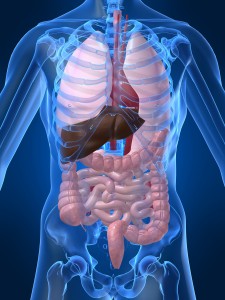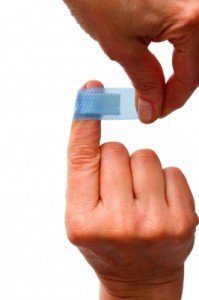Living with fibromyalgia is a delicate task of balancing energy– spending it wisely, and increasing it in any way possible. In addition to taking extra vitamins like vitamin B12 for boosting stamina, you should also include fibromyalgia-approved exercises in your chronic pain relief regimen. Here are some energy-boosting workouts that won’t wear you out…
Fibromyalgia exercises- are you kidding me?
The last thing you probably want to do during a fibromyalgia flare-up is exercise, and you’re right; During the “bad days,” you should take it easy, pace yourself, and keep physical activity to a minimum.
However, the term “use it or lose it” applies here; complete sedentariness not only results in muscle atrophy, it will also increase your pain symptoms!
15 Chronic Pain Causes and 15 Treatments (Vitamin B12 is one)
Here’s what you’ll get back
Even 20 minutes of low-impact aerobics or gentle strength training will benefit the fibromyalgia sufferer in the following ways:
 Improved range of motion
Improved range of motion- Increased feelings of wellbeing
- Positive outlook on life
- Increased independence
- More restful sleep
- Less stress
- Increased endorphins
- Better weight management
- Improved aerobic endurance
- More energy
- Heart health
- Healthier bones
- Stronger muscles
- Pain relief
- Decreased anxiety and depression
- Increased growth hormones
The top 10 fibromyalgia exercises
Remember; always consult your doctor before starting any new fitness regimen, especially if you suffer from heart disease. While these exercises are safe for fibromyalgia, you should still seek medical advice from your current doctor.
#1 Take a dive!
Water sports are one of the gentlest, most therapeutic activities for people with chronic pain such as fibromyalgia. Aqua aerobics and other pool exercises provide natural resistance while allowing full range of movement. Check your local gym for water-based classes like underwater jogging, water polo, or Watsu.
#2 Walk it off!
Waling is an inexpensive and practical sport that you can do almost anywhere! Still, proceed with caution: always wear good walking shoes with proper insoles, avoid walking on concrete, and use controlled steps to avoid shock injuries.
#3 Get moves like Fonda!
Jane Fonda made “aerobics” a household name in the 80s with her famed workout videos. Today, cardio CDs are still popular, and available in a wide range of fitness levels. For fibromyalgia, choose low-impact aerobics that are more controlled and less stressful on the muscles than high-impact routines.
Chronic Pain and Acute Pain- What’s the Difference, anyways?
#4 Go for a spin!
Stationary exercise machines like the exercise bike, elliptical stepper, or treadmill are practical for people who just want to get their workout done quickly and privately. Modern fitness machines allow you to track your heart rate, distance, and calories burned.
#5 Firm up!
Toning your muscles actually alleviates pain, provided you don’t overdo it. Ignore the phrase, “No pain, go gain.” It’s not true, even for people who don’t have fibromyalgia. In addition to boosting energy, strength-training will also improve your resting heart rate, allowing you to burn more calories even while resting!
#6 Now stretch!
Keeping your muscles flexible is instrumental in managing fibromyalgia pain. Before any exercise, always do some light arm, leg, neck, and shoulder stretches, for increased flexibility, less muscular stiffness, and better range of motion.
#7 Find your chi
A popular form of Chi-Gong (Qigong), Tai Chi uses controlled movements, breathing, and mental focus for better health, more energy, and less pain symptoms.
#8 Yoga
Many fibromyalgia patients favor yoga, as it incorporates relaxation, toning, breathing, and light aerobics all into one class. Yoga is excellent for relieving stress, reducing pain, and boosting energy.
Brain Fog: 20 Causes and Symptoms
#9 Pilates
Pilates, once a well-guarded practice of the elite ballet class, is now part of mainstream culture. Pilate’s classes that focus on correct breathing while strengthening the torso are available in most gyms.
#10 Get physical!
Physical therapy, that is. If you’re not comfortable with following a fitness plan on your own, then seek a licensed physical therapist trained to work with fibromyalgia patients. More than just a fitness coach, a physical therapist will assist you in improving flexibility, preventing muscle loss, and boosting energy through various exercises without causing any damage to your muscles or joints.
Read more about fibromyalgia and vitamin B12
9 Conditions that Mimic Fibromyalgia and Vitamin B12 Deficiency
How Vitamin B12 Deficiency affects your Nervous System, Part 1: Physical Pain
Please tell us…
Will you try any of the exercises suggested? Do you know of any other great workouts for fibromyalgia patients?
Do you have any questions or suggestions? Please leave your comments below.
Share with your friends!
If you found this article helpful, then please share with your friends, family, and coworkers by email, Facebook, or Google+.
Sources:
The Benefits of Exercise for Fibromyalgia
Images:
Ambro, Michal Marcol, Phiseksit







